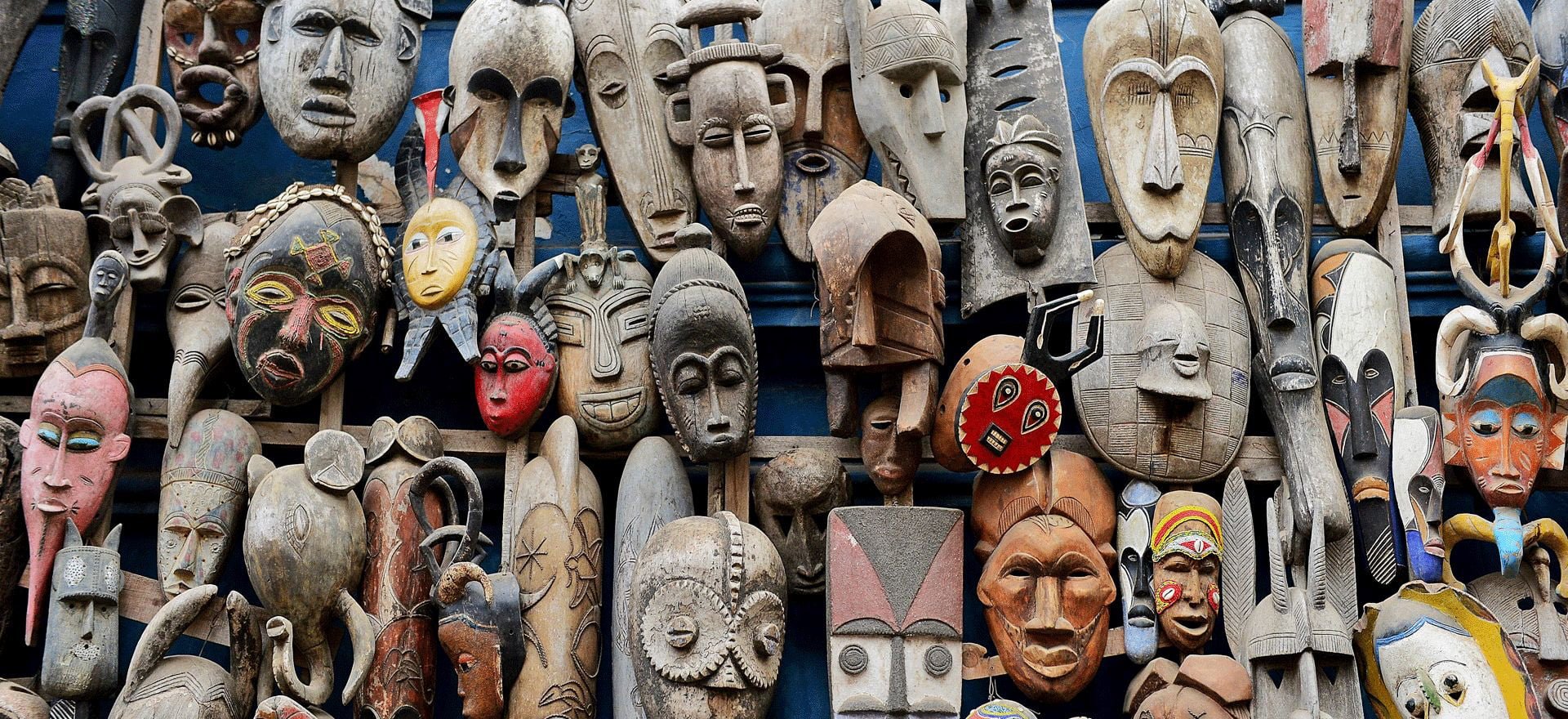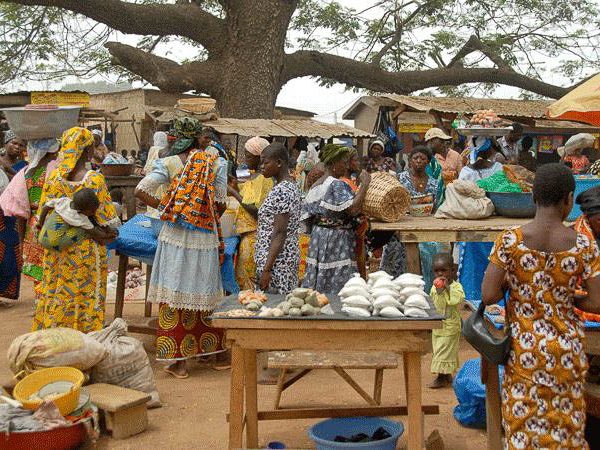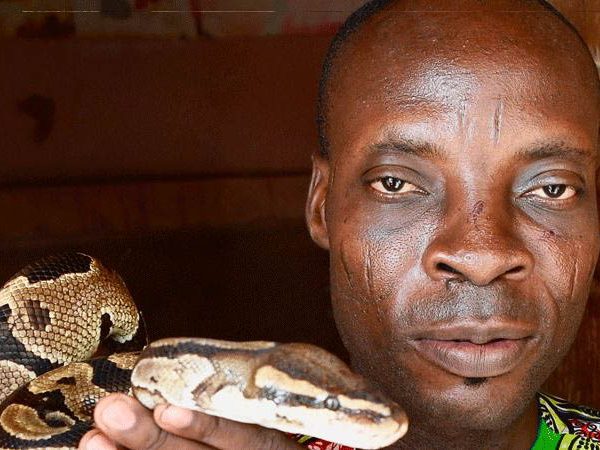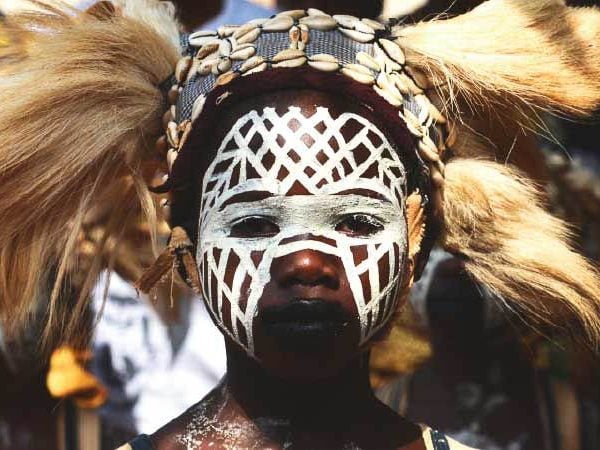Day 1 - Dakar
Arrive in Dakar and transfer to the hotel. Overnight Hotel Djoloff or similar.
Dakar
Located on the Cap Vert peninsula and Africa’s westernmost city, Dakar is a thriving, colourful, lively city that provides the first real experience of urban West Africa on this trip. Brash and often uncompromising, it was once of the major cities of the French Empire and today is home to over a million people. With busy traffic and street vendors everywhere, Dakar is a world away from the rest of Senegal. Nearby is Goree Island, in contrast a peaceful sanctuary with well preserved colonial buildings giving it an almost Mediterranean feel. Goree is best known for its associations with the slave trade, although there is some controversy about how much of a role it actually played.
Day 2 - Dakar – Goree Island
Spend the morning exploring Dakar and experiencing urban West Africa, before boarding a ferry to visit nearby Goree Island, once a centre of the slave trade. Explore the historic sights of the island with its colonial architecture and colourful markets. Overnight Hotel Municipal or similar. (BLD)
Day 3 - Lac Rose
Leave the island and continue to Lac Rose. A shallow salt lake surrounded by dunes, the high concentration of minerals sometimes gives it a pink hue. Explore the surrounding area and visit a nearby fishing village, the largest in Senegal. Overnight Hotel Trarza or similar. (BLD)
Day 4 - Saint Louis
Continue to the atmospheric town of St Louis, once the capital of French West Africa. Spend the day exploring its streets by traditional caleche (horse and carriage). Overnight Hotel de la Poste or similar. (BLD)
Saint Louis
One of West Africa’s nicest towns, Saint Louis was the first French settlement in the region and still retains much of its old colonial architecture, contributing to its status as a UNESCO World Heritage Site. Divided between an island and a peninsula, most of the old European buildings are concentrated on the island with an old governor’s palace, museum, and numerous grand old houses.
Day 5 - Djoudj National Park – Fulani Villages
Day 6 - Touba
Drive to Touba, a stronghold of the Mourid Islamic brotherhood and considered to be a sacred town in Senegal. Spend the rest of the day exploring the town and learning about the spiritual traditions of Islam in Senegal. Overnight Kabacoto Safari Hotel or similar. (BLD)
Touba
Touba is the centre of the Mourids, a strict Islamic sect that started in the 19th century with Sufi associations, and the town is an important centre of pilgrimage within the region. With that in mind, it’s forbidden to bring either alcohol or cigarettes into the town and there are no hotels here, for they are seen somewhat as dens of iniquity. Each year the town plays host to an annual pilgrimage called the Grand Magal, when up to three quarters of a million people descend, raising comparisons with a West African Mecca. The main sight here is Touba’s enormous mosque – construction began in the 1930s but was not completed until the 1960s, and it is one of the largest on the continent.
Day 7 - Sine Ngayene – Banjul
Drive to Sine Ngayene, an astonishing megalithic site of over a thousand carved stones arranged into fifty two circles, recognised as a UNESCO World Heritage Site. From here we cross the border into the Gambia and take a ferry across the river, to transfer to our hotel on the outskirts of Banjul. Overnight Kairaba Hotel or similar. (BLD)
Day 8 - Banjul – Casamance
Spend the morning in the company of an ornithological guide, looking for birds in an area that is home to over 70% of the species that live in the country. We then cross back into Senegal and the lush Casamance region. Overnight Hotel Kadiandoumagne or similar. (BLD)
Day 9 - Ziguinchor
Spend the day exploring the culture of the Dioula people, meeting the king of the oldest Dioula kingdom. With his permission we learn about the animistic customs that hold sway here and venture into a sacred forest where we may be lucky enough to see traditional rituals taking place. In the afternoon we fly back to Dakar over the river estuaries and Atlantic coast, and then transfer to Saly on the coast for our final night in Senegal. Overnight Hotel Bougainvilliers or similar. (BLD)
Day 10 - Dakar
Transfer to the airport for your flight home. (B)
Please note that we sell this trip in conjunction with our local partner and therefore you should expect people of different nationalities and a maximum group size of 16 on this tour.
There may be some minor changes to this itinerary for 2024 departures. Please ask us for the relevant itinerary.





What's included?
-
Airport transfers
We include arrival and departure transfers regardless of whether you book flights yourself, or we book them for you. If you’re booking them yourself, then please let us know the details so that we can arrange the transfers. Please note though that if you arrive earlier than Day 1 of the tour, and leave after the final day, we may need to make an additional charge for an airport transfer.
-
Accommodation
Accommodation as listed in the dossier. The nature of the destinations that we operate may sometimes mean that we need to change hotels, but we’ll always endeavour to keep the same standards. Please be aware that as we operate in many countries where tourism is in its infancy, hotel standards may not be the same as you’re used to elsewhere.
If you are a same sex couple, on some occasions it may be necessary to book two separate rooms – please contact us for more information.
Please note that it is not always possible to secure twin rooms as many hotels in West Africa only have rooms with one large bed. If you would like a twin room you must check with us beforehand that this is possible.
-
Guides
You will be accompanied by an English speaking guide.
-
Meals
As listed within the itinerary / dossier (B-Breakfast, L-Lunch, D-Dinner). These will vary from trip to trip – in some areas it makes sense to include all meals while in others there is a good choice of restaurants and we feel people might like to ‘do their own thing’ now and again. Please note that when meals are included, sometimes these will be in hotels, as often these are the most appropriate option, and will sometimes be set menus. Local restaurants are often lacking in variety, as well as the capacity to cater for groups. Drinks are not included and are at your own expense.
-
Entrance fees
Entrance fees are listed for those sites that we mention within the itinerary. If there are any other sites that you’d like to see, these would be at your own expense.
What's not included?
-
Visas
We don’t arrange visas for our travellers, but if an invitation letter is necessary then we will arrange this for you. If you need any advice with visas then just give us a call, or alternatively a visa agency such as Travcour can assist.
-
International flights
Many of our travellers arrive from different destinations and so we don’t include international flights in the cost of our tours. If however you would like us to book flights for you, then just give us a call and we’ll be happy to discuss your options.
-
Travel Insurance
If you need any assistance with this, then let us know – although we can’t arrange it ourselves we can point you in the direction of a reputable provider that can assist.
Visas
Visas are no longer required to visit Senegal for most nationalities. Australians must obtain a multiple entry visa in advance.
For the Gambia, UK citizens do not require a visa but other nationalities including USA citizens can obtain a visa at the border – current cost is approx. €120 but this can change.
Visa regulations can change however and so we recommend that you contact your nearest embassy for the most up to date information.
Health and vaccinations
We are not medically qualified and so we recommend that you speak to your doctor or nearest health professional for advice concerning recommended vaccinations. For more advice on vaccinations you can also visit www.fitfortravel.nhs.uk.
Please note that Yellow Fever is a compulsory vaccination for entering Senegal and you must bring your vaccination certificate with you, otherwise you may not be allowed to enter.
If you have any physical limitations that might impact your ability to participate in the planned tour activities, it’s essential that you make us aware as soon as possible so that we can discuss this with you.
Insurance
It is a condition of joining our tours that you have suitable travel insurance in place, and we cannot accept travellers without insurance. All policies differ in terms of what they will cover, but as a minimum you need medical and health cover, which will cover you for the whole time that you are away. Most policies will also include cancellation cover, which will cover you if an unforeseen circumstance obliges you to cancel your trip. We recommend that you obtain your insurance as soon as you book your trip.
Please note that government travel warnings often affect the validity of your travel insurance, and you should check this with your insurance company.
Money
In Senegal the West African CFA is the currency, which is impossible to obtain outside of the region. It is best to bring Euros for exchange purposes.
Credit cards won’t be much use on this trip, and ATM machines are few and far between. Therefore it’s sensible to bring enough cash to last you throughout the tour.
When to go
The best time to travel in this region is between October and March, outside of the rainy season when tracks can become difficult.
Local conditions
When travelling to some of the destinations we offer you need to bear in mind that things won’t always work here as we’re used to them working at home. Travelling in underdeveloped and untouristed destinations requires both patience and a sense of humour. There may be problems with infrastructure, attitudes may be different, and maintenance may not be as high a standard as we would always like, but this is very much part and parcel of travelling in such a place.
In addition, roads throughout the parts of Africa that we visit are often poorly maintained (if at all!) and distances between key sites of interest can be long. Travelling in Africa can be tiring, hot and dusty at times, and inevitably it can be frustrating. While there are some issues that we are able to solve, others are intrinsic to the countries that we travel through, and you should be aware that many of the countries that we operate in cannot be compared to others on the continent that have better infrastructure – for example the popular tourist destinations of east and southern Africa. Although travelling in these countries can at times be an ‘unpolished’ experience, this is all part of the adventure. We aim to resolve any issues as quickly as possible, and putting up with a pothole (or ten) is undeniably worth it for the amazing sights and cultural experiences you will encounter along the way.
This is particularly relevant to this trip – it travels through some remote regions, some of which are largely isolated from the outside world and have very little experience of tourism whatsoever.
Travel advice
We keep a very close eye on the travel advice issued by the UK Foreign and Commonwealth Office so that we can keep you up to date with any warnings.
At the time of writing, the UK government does not advise against travel to any parts of Senegal that we pass through on this tour.
We work very closely with our local team and are fully confident that we can operate tours safely in Senegal. Should you have any concerns over safety please do not hesitate to contact us and we can address your concerns.
This relates to advice from the British government – other nationalities need to check the stance of their own governments.
Please note that the information contained above is highly susceptible to change, and while we endeavour to keep up to date we recommend that you use this as a guide only. Should you have any questions, please don’t hesitate to contact us.













